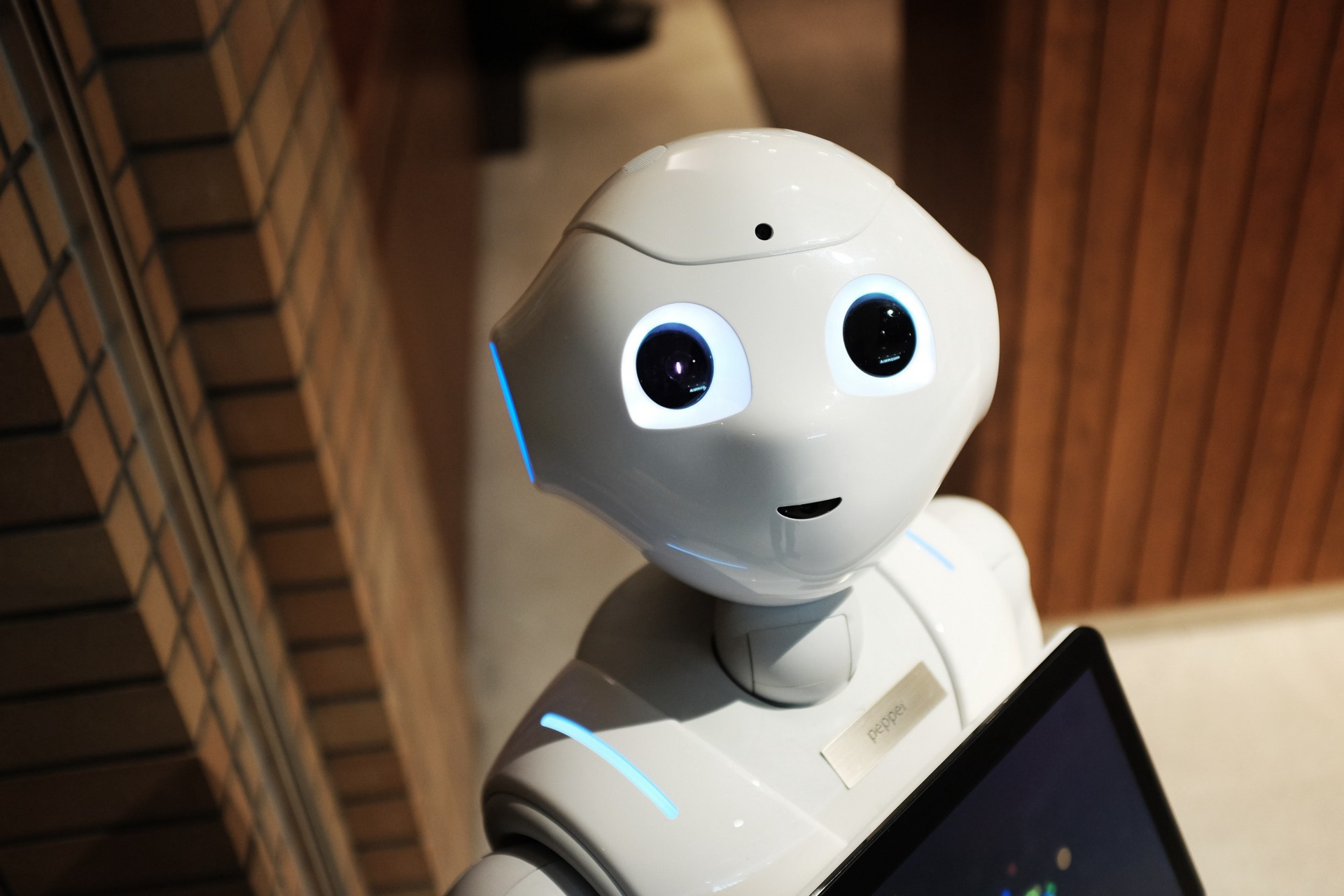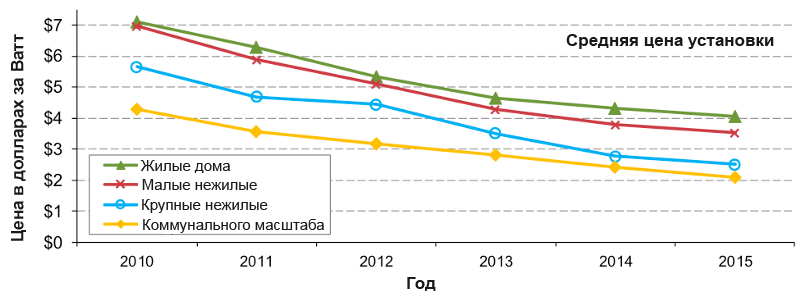Even being a big fan of cool new technologies such as
artificial intelligence ,
blockchains, or virtual and augmented reality, the author admits that he began to get tired of the fact that these technologies take all the air and fame from many other cool technologies currently being developed around the world. AI is already used in
art ,
finance and
health , but even despite the undeniable usefulness of these developments, the hype around them is getting too loud.

System technology
Jeff Bezos’s
Blue Origin project recently announced that it would attract its first paid customer as part of its space exploration campaign. This news appeared shortly after reports that Elon Musk expects to send two SpaceX clients to fly around the moon. Mark Zuckerberg and Priscilla Chan
are building a school. Google's Sidewalk Labs project
converts 16 US settlements into smart cities using technologies that improve the transport and environmental situation. The largest technology companies take money earned on likes, clicks and advertising money and send them to the development of large systems such as space, education, cities and energy.
Work of the future
This is not so much about the new trend, but about the already established trend, which will be developed in the next few years. Its essence is in deep fruitful cooperation between colleagues separated by several time zones and working on key projects for companies without the need for them to become “full-time employees”.
This approach is different from consulting work, in which you are attracted to help, but you are not part of the main team of the company, not about freelancing, when an employee performs certain one-time tasks or projects on time and not about temporary employment, that is performance of work duties in a certain period of time. This new approach to building a workflow is different from all of the above and is based on the understanding of employers that being an expert or a very experienced specialist in a particular area, an employee will be focused not only on getting a job as such.
It is about the opportunity to use the help of professionals without having to make full-fledged employees of them in the traditional sense. The trend is gaining momentum thanks to the development of collaboration technologies (Slack and others) and the opportunity that has emerged in the last decade to get involved in work from anywhere in the world. Kevin Kelly mentions this in
The Inevitable , and a Microsoft video called Future of Productivity below illustrates this approach very well.
Branded cities and digital countries
As more and more cities publish statistical and other information about the processes taking place in them, brands and marketing specialists savvy in terms of digital tools, are immersed in these data in order to better understand where and when they will be more optimal to sell their goods. By combining
traffic data with weather data and information obtained from your car’s number and the distance it covered during a trip, brands can show regular transport users that are aimed at their needs and local advertising. For example, displaying advertising stocks on a grilled chicken in a local grocery during a long trip home. Despite the fact that it sounds scary, such a future of individualized advertising is inevitable in a world where all our data (both personal and citywide) are in the public domain for mining. For cities trying to stay afloat such advertising can become a new source of profit.
Hand in hand with the branding of cities will go digitalization of entire countries. In
Mauritius , thanks to the help from China, the rapid transition of the whole country (albeit small) to high-speed Internet is now taking place in order to support the transition to the economy of the service sector, planned by the government. The most ambitious plans for digitalization are bearing India. Microsoft promised to provide broadband access to the country for 500 thousand villages. At the same time, the initiative to
introduce a biometric identity system throughout the country is being implemented in full swing. Similar initiatives should be expected in other countries as their cities become “smarter”.
Disconnection from the general grid as a service
The move to disconnect from the centralized power grid gained momentum last year, when Amazon, Google, 3M, Apple and a group of other large corporations
turned to alternative electricity suppliers. Many of these suppliers are interested in the provision of generator sets (wind turbines, solar technologies and devices for the accumulation of large amounts of energy), and in the provision of services along the lines of utility companies. We can rightly expect this trend to intensify this year. This will happen due to the support of smaller companies that are in the list of 1000–2000 largest US businesses and who want to join this trend. Such a transition has now become profitable, since renewable electricity has become equal in price to that produced by traditional sources, and the prices for solar energy, moreover, are constantly falling.
 Source: http://newscenter.lbl.gov/2016/08/24/median-installed-price-solar-united-states-fell-5-12-2015/
Source: http://newscenter.lbl.gov/2016/08/24/median-installed-price-solar-united-states-fell-5-12-2015/Nootropics
With the help of slogans like “Better brains, Better Society,” companies like Nootrobox are trying to expand the capabilities of modern products that enhance cognitive function. Such developments, according to their creators, do not have any side effects. Of course, we have already seen similar products and similar promises, however, the convergence of trends in the field of nutrition (does anyone want Soylent?), Protein lunches (Protein Bars) and the desire to try new technologies at any cost to prepare us for the appearance of “healthy” »Energy types in new packages. The next logical step is to reduce the size of the packaging of products that improve brain function. This is exactly what Nootropics promises us.
Digital beauty
L'Oreal company makes 28 billion profit from the sale of dermatological and cosmetic products worldwide. It is not surprising that it is at the forefront of the “technology of beauty”. At CES, a division of a company called L'Oréal's Technology Incubator showed a smart comb. This idea has made many present laugh, while at the same time making us think about new individualized cosmetic products that can adapt to the needs of each individual consumer. Personalized and network-connected products, such as the
Mapo Mask, will allow you to come to a true variety of
personal care.

Genetic Material Change (CRISPR)
This subject causes grave concern to the guardians of ethics. Over the past 4 years, scientists have found a way to edit animals and human genes through the use of a small deflection of the bacteria in the immune system. The
CRISPR -Cas technique will allow scientists to make these changes in a matter of days. Previously, this process took weeks, and sometimes even months! The discovery led to a flurry of work in a variety of research institutes (scientists from the University of Pennsylvania received approval for editing T-cells in cancer patients). Startups also come into this game (for example, Editas Medicine will focus its efforts on treating cancer, congenital eye diseases and other pathologies using the CRISPR method).
 Screenshot from Editas Medicine website
Screenshot from Editas Medicine websiteAs we can see, besides the hype around AI, the blockchain, virtual and augmented reality around the world, a lot of interesting work is happening in various areas of activity.
And, of course, this is not all trends and technologies worthy of mention.
